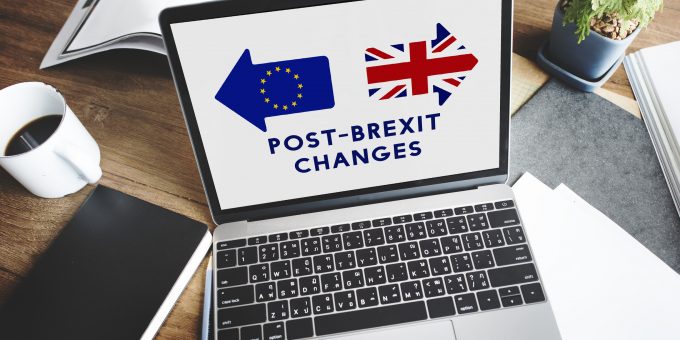Last-mile parcel carriers struggle while global express market is set for growth
The global express parcel market is set to see steady growth over the next four ...
TFII: SOLID AS USUALMAERSK: WEAKENINGF: FALLING OFF A CLIFFAAPL: 'BOTTLENECK IN MAINLAND CHINA'AAPL: CHINA TRENDSDHL: GROWTH CAPEXR: ANOTHER SOLID DELIVERYMFT: HERE COMES THE FALLDSV: LOOK AT SCHENKER PERFORMANCEUPS: A WAVE OF DOWNGRADES DSV: BARGAIN BINKNX: EARNINGS OUTODFL: RISING AND FALLING AND THEN RISING
TFII: SOLID AS USUALMAERSK: WEAKENINGF: FALLING OFF A CLIFFAAPL: 'BOTTLENECK IN MAINLAND CHINA'AAPL: CHINA TRENDSDHL: GROWTH CAPEXR: ANOTHER SOLID DELIVERYMFT: HERE COMES THE FALLDSV: LOOK AT SCHENKER PERFORMANCEUPS: A WAVE OF DOWNGRADES DSV: BARGAIN BINKNX: EARNINGS OUTODFL: RISING AND FALLING AND THEN RISING

UK business is again looking for workarounds to continue trading with the EU, after Germany announced it would be ending VAT exemption for goods valued at less than €22.
From 1 July, customers will be required to pay import charges on all goods entering Germany from non-EU countries, including the UK and follows an EU initiative aimed at averting VAT fraud and impeding preferential treatment of non-EU mail order companies.
One UK-based SME selling records told The Loadstar Brexit had become akin to “death by 1,000 cuts” with restrictions on trade ramping up.
“It leaves me in a Brexit limbo right now, where I am continuing to sell stuff direct, but only low-value, under €22,” the record seller said. And it is now beginning to affect our sales, with the percentage of trade with the EU dropping from 25% to 17%.”
Attempting to get ahead of the situation, DHL informed customers of the pending change and noted that some exceptions would remain.
“Customers will not have to pay import duties if the goods were ordered from an online marketplace already registered in the EU and pays the VAT due in an EU country (the so-called import one-stop shop solution (IOSS)),” the company said.
“If the value of the goods is so low that import VAT due is less than €1 – meaning the goods are worth no more than €5.23 – customs will waive the charges.”
For customers that do not pay import duties in advance, DHL warned it would pay these charges and then collect them from the recipient customer on delivery or when it is collected at a retail outlet, with a €6 plus VAT customs clearance fee.
The head of international affairs at the Federation of Small Businesses, James Sibley, said he was hopeful the Brexit Support Fund and a new IOSS would help SMEs avoid some pain.
“But what we really need to see is policymakers on both side of the Channel doing their upmost to minimise additional tariff and non-tariff barriers for the smallest firms as we try to get the global economy back on track,” he told The Loadstar.
“Fundamentally though, firms are struggling with the new requirements that have arisen because of the EU-UK trade deal and ending the VAT exemption will hit a lot of firms hard.”
In its own bid to simplify the new arrangements, FedEx Express announced it had reached an agreement with KPMG to offer a streamlined IOSS solution at a discounted fee, which it said would help e-commerce sellers outside the EU comply with the new rules.
Comment on this article